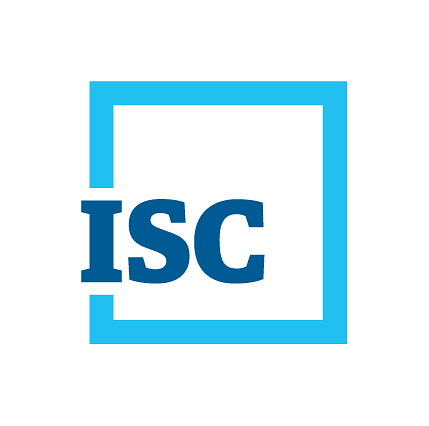
Beyond Registry: How ISC is Building a Culture of Trust & Talent in Saskatchewan
Information Services Corporation's Great Place to Work certification isn't just a nice-to-have – it's a strategic investment in talent, public trust, and a growing tech hub in Saskatchewan. We explore the company’s approach.
Beyond Registry: How ISC is Building a Culture of Trust & Talent in Saskatchewan
REGINA, Saskatchewan – Information Services Corporation (ISC), a leading provider of registry and information management services, has earned Great Place to Work® certification, a recognition increasingly tied to a company’s ability to attract and retain top talent, and – crucially – maintain public trust. While ISC's core business may seem far removed from the buzz of Silicon Valley, its recent certification signals a broader trend: even in traditionally conservative sectors, prioritizing employee experience is becoming a key competitive differentiator.
This isn’t simply a feel-good story. ISC operates in a sensitive space, managing vital public data and records. A strong, ethical workplace culture is paramount to maintaining the integrity of that data and, consequently, public confidence. The company’s certification, applicable to ISC and its subsidiaries – ESC Corporate Services Ltd., Enterprise Registry Solutions Ltd., Reamined Systems Inc., and UPLevel – isn't just about happy employees; it's about building a foundation of trust.
“This certification validates what we’ve been working towards for years,” explains a senior leader at ISC, speaking anonymously. “We recognized early on that our people are our greatest asset. In an industry built on data integrity, fostering a culture of ethical behavior and employee empowerment isn't optional; it's essential.”
Beyond the Bottom Line: The ROI of a Positive Workplace
The connection between employee satisfaction and financial performance is increasingly well-documented. Research indicates a strong correlation between engaged employees and higher productivity, improved customer satisfaction, and increased profitability. ISC appears to be benefiting from this dynamic. Financial reports show a consistent upward trend in key metrics since the company began actively investing in employee experience initiatives.
“We’ve seen a noticeable improvement in employee retention,” notes a member of ISC’s HR team, also speaking anonymously. “The cost of replacing an employee is significant, both financially and in terms of lost institutional knowledge. By creating a workplace where people feel valued and supported, we’re able to attract and retain top talent, which ultimately benefits our customers and shareholders.”
ISC's approach extends beyond traditional perks and benefits. The company has implemented a number of initiatives focused on fostering collaboration, diversity, and creativity. These include employee resource groups, mentorship programs, and opportunities for professional development. A key element is a commitment to transparent communication and open feedback channels.
A Hub in the Prairies? Saskatchewan's Growing Tech Ecosystem
ISC’s success also reflects a broader trend: the emergence of Saskatchewan as a growing tech hub. Traditionally known for its agricultural roots, the province is rapidly diversifying its economy, with a growing number of tech companies choosing to locate or expand in the region. This is due, in part, to government initiatives aimed at attracting talent and fostering innovation.
“There's a real sense of momentum building in Saskatchewan’s tech sector,” says an industry analyst familiar with the province. “ISC is a key player in that ecosystem, not only as a major employer but also as a company that’s actively investing in its people and creating a positive workplace culture. That’s attracting talent and helping to build a reputation as a desirable place to live and work.”
However, challenges remain. Attracting and retaining top talent in a competitive market requires a concerted effort. ISC, like other tech companies in the region, faces competition from larger centers like Toronto and Vancouver. To overcome this, the company is focusing on highlighting the unique benefits of living and working in Saskatchewan, such as a lower cost of living, a strong sense of community, and access to outdoor recreation.
Building Trust in the Digital Age
In an era of increasing data breaches and cybersecurity threats, trust is more important than ever. ISC operates in a highly regulated industry, and the company is committed to protecting the privacy and security of its customers’ data. This commitment is reinforced by a strong ethical culture and a focus on employee training and awareness.
“We understand that we have a responsibility to protect the data that our customers entrust to us,” explains the senior leader at ISC. “That’s why we’ve invested heavily in cybersecurity measures and employee training. But technology alone isn’t enough. We need a culture of ethical behavior and accountability to ensure that our data is protected at all times.”
The Great Place to Work certification is a validation of ISC’s efforts to build a strong, ethical workplace culture. But it’s not the finish line. The company recognizes that maintaining a positive workplace culture requires ongoing investment and commitment. As ISC continues to grow and evolve, it remains committed to putting its people first and building a culture of trust, innovation, and excellence.
ISC’s story offers a valuable lesson for companies in all sectors: prioritizing employee experience isn’t just the right thing to do; it’s a strategic imperative for success in the digital age. By building a culture of trust, innovation, and excellence, ISC is not only attracting and retaining top talent but also positioning itself as a leader in its industry and a valuable contributor to the growing tech ecosystem in Saskatchewan.
